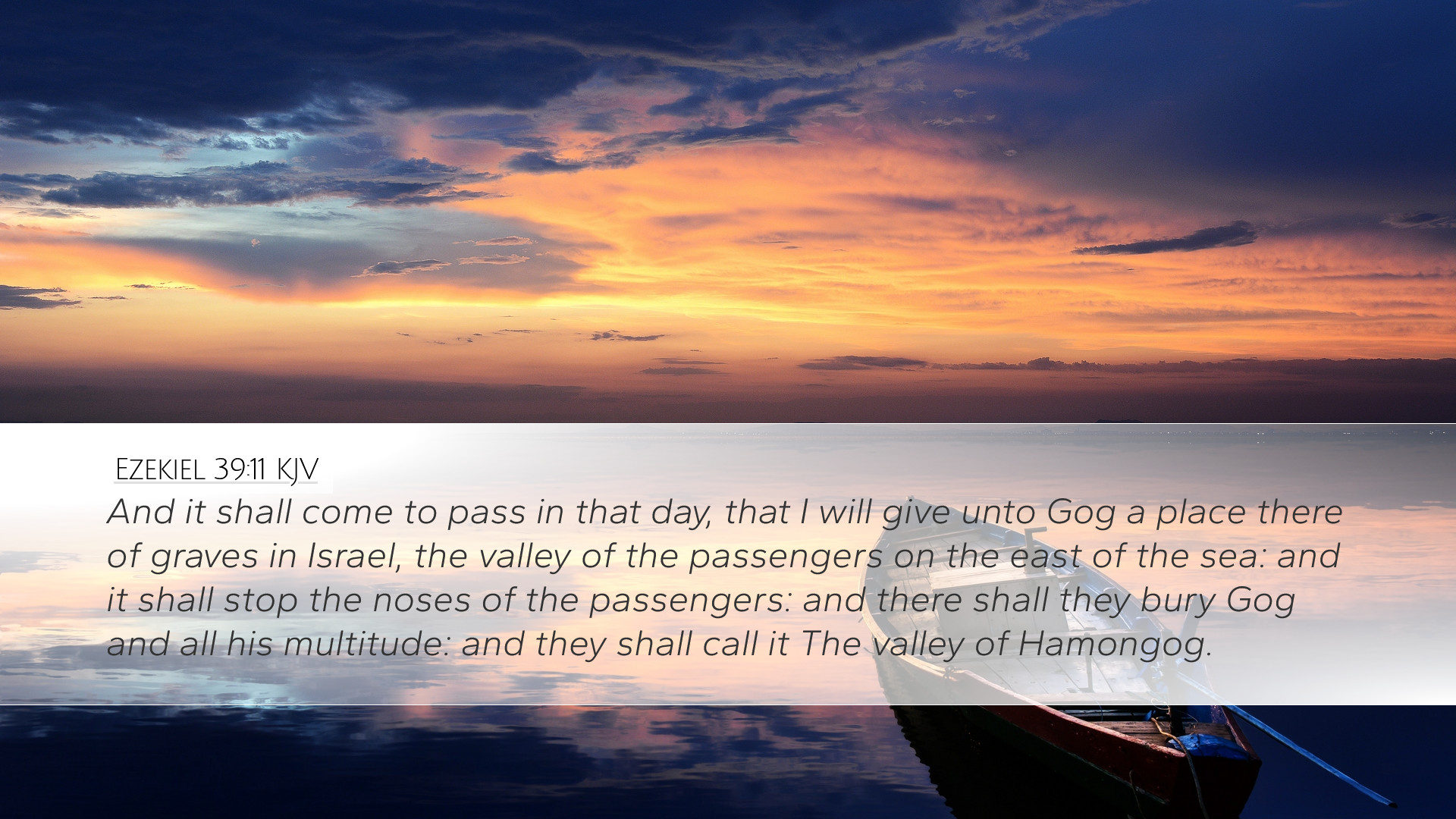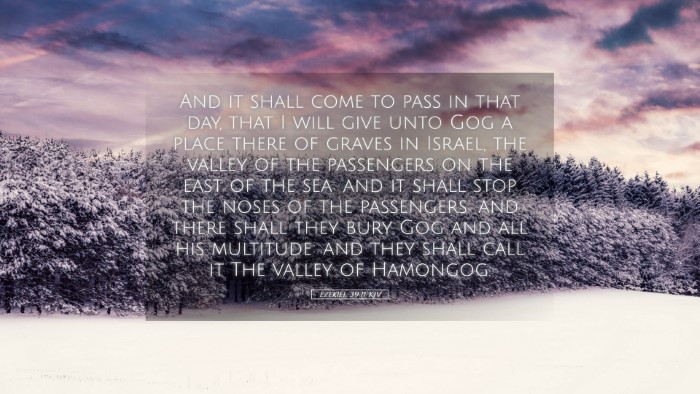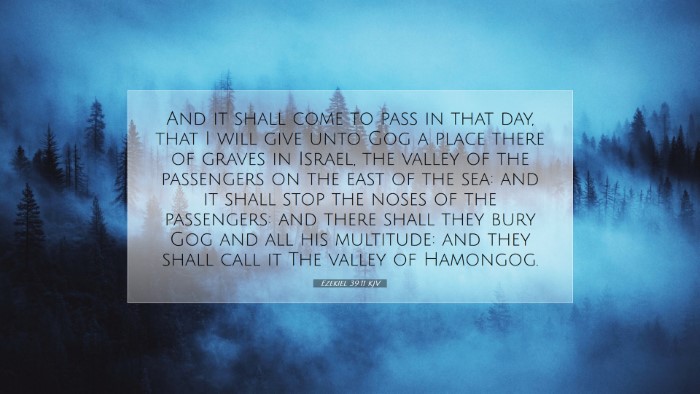Ezekiel 39:11 Commentary
Verse: “And it shall come to pass in that day, that I will give unto Gog a place there of graves in Israel, the valley of the passengers on the east of the sea: and it shall stop the noses of the passengers: and there shall they bury Gog and all his multitude: and they shall call it The valley of Hamon-gog.”
Introduction
The prophecy of Ezekiel reaches a poignant moment in chapter 39, particularly verse 11, which marks a decisive turn in God's dealings with His people. This commentary synthesizes insights from public domain sources to explore the depth of meaning within this verse, providing significance for pastors, students, theologians, and scholars.
Contextual Analysis
Ezekiel’s prophecies often dealt with the restoration of Israel and the judgment of its enemies. Here, the focus is on Gog, representing the nations that would come against Israel. This verse unfolds against the backdrop of divine retribution that underscores God's sovereignty over history.
Matthew Henry's Insights
Gog's Judgment: Matthew Henry emphasizes that God's final judgments on Gog serve as a demonstration of His unmatched power. The phrase “I will give unto Gog a place there of graves” indicates that judgment results not only in defeat but in a dishonorable burial, a fate reserved for those who stand opposed to God’s chosen people.
Albert Barnes's Commentary
The Valley of Hamon-gog: Albert Barnes elaborates on the naming of the valley as a significant act. The term “Hamon-gog” translates to “the multitude of Gog,” serving as a memorial to the defeated enemies of Israel. This place becomes a stark reminder of the fate that befalls those who oppose the Lord.
Adam Clarke's Observations
Symbolism of Burial: Adam Clarke draws attention to the cultural significance of burial in Hebrew thought. Graves symbolize not just death, but the finality of defeat and divine judgment. Clarke notes that the naming of the valley signifies a permanent reminder within Israel’s collective memory, reinforcing the idea that God will ultimately protect and vindicate His people.
Theological Implications
This verse raises profound theological discussions about God's sovereignty, justice, and mercy. It challenges believers to understand that God is actively involved in history, orchestrating events to fulfill His divine purpose.
- Divine Sovereignty: The text emphasizes that God is in control, directing the course of nations and ensuring that His plans come to fruition.
- Judgment and Redemption: The judgment of Gog signals a larger theme in scripture where God’s justice is realized in the face of evil, ultimately leading to the restoration of His people.
- Memory and Legacy: The establishment of a grave for Gog becomes a physical reminder of the consequences of rebellion against God, urging the faithful to remember that God will not be mocked.
Literal and Figurative Interpretations
Interpreters of this verse often wrestle with the literal vs. figurative meanings of Gog's burial. While some view it as a historical event related to a specific battle, others see it as a symbolic representation of spiritual truths regarding evil’s ultimate defeat.
Liberal Theology Perspective
From a liberal theological standpoint, some scholars may view Gog as a metaphor for hostile nations that threaten Israel's wellbeing. This aligns with a more contemporary understanding of geopolitical tensions, allowing for a broader application of the text’s themes beyond its immediate context.
Conservative Theology Perspective
Conversely, conservative theologians argue for a literal interpretation of Gog, viewing the prophecy as a foreshadowing of future apocalyptic events. This perspective emphasizes the inerrancy of scripture and God's promises to Israel.
Applications for Life and Ministry
For pastors and Christian leaders, Ezekiel 39:11 serves as a powerful reminder of God’s provision and protection. The assurance that God controls the fate of His enemies encourages believers to stand firm in faith, knowing that opposition will ultimately be vanquished.
Encouragement for Believers
In a world where believers may feel besieged by opposition, this passage reassures them that ultimate victory belongs to the Lord. It encourages the faithful to remain steadfast, proclaiming the hope found in God’s promises.
Teaching and Preaching Insights
This verse provides rich material for preaching about divine sovereignty and the call to faithfulness amid adversity. Pastors can highlight the hope of vindication and the importance of being loyal to God's ways.
Conclusion
Ezekiel 39:11 is not merely a historical account but a profound declaration of God’s authority and a promise of divine justice. Combining the insights from Henry, Barnes, and Clarke, we grasp the importance of this scripture in the broader narrative of God’s relationship with humanity.
As we reflect on this passage, may we be reminded of the hope and victory that God offers through His Word, urging us to trust in His plans both for ourselves and the world around us.


